
Lisa Grossman is the astronomy writer for Science News. Previously she was a news editor at New Scientist, where she ran the physical sciences section of the magazine for three years. Before that, she spent three years at New Scientist as a reporter, covering space, physics and astronomy. She has a degree in astronomy from Cornell University and a graduate certificate in science writing from UC Santa Cruz. Lisa was a finalist for the AGU David Perlman Award for Excellence in Science Journalism, and received the Institute of Physics/Science and Technology Facilities Council physics writing award and the AAS Solar Physics Division Popular Writing Award. She interned at Science News in 2009-2010.

Trustworthy journalism comes at a price.
Scientists and journalists share a core belief in questioning, observing and verifying to reach the truth. Science News reports on crucial research and discovery across science disciplines. We need your financial support to make it happen – every contribution makes a difference.
All Stories by Lisa Grossman
-
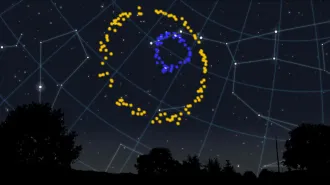 Cosmology
CosmologyA massive cosmic ring may challenge a key assumption about the universe
At 3.3 billion light-years across, the ring may challenge the “cosmological principle” that the universe looks uniform at sufficiently large scales.
-
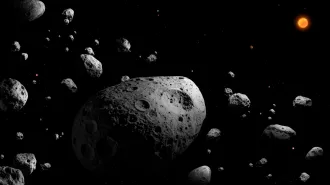 Planetary Science
Planetary ScienceA newly spotted asteroid spins faster than any of its size ever seen
Among the first finds from the Vera C. Rubin Observatory, the discovery hints at a population of exceptionally strong asteroids.
-
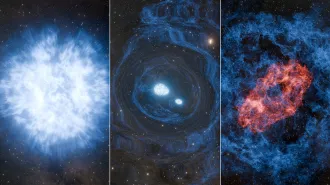 Astronomy
AstronomyA double cosmic explosion could be the first known ‘superkilonova’
The blast may have been a kilonova — a type of neutron star merger — in the wake of a more traditional supernova.
-
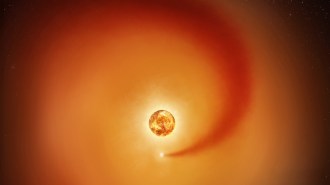 Space
SpaceBetelgeuse’s buddy leaves a wake in the giant star’s atmosphere
The wake left by Betelgeuse’s companion could solve a decades-old mystery of its strange brightness cycles.
-
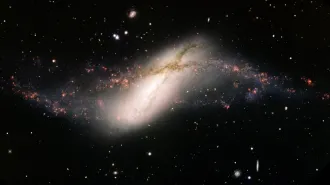 Astronomy
AstronomyGalaxies with ‘hoop skirts’ are more common than we thought
The discovery of thousands more galaxies with stars ringing their main disks could help astronomers study galactic evolution more generally.
-
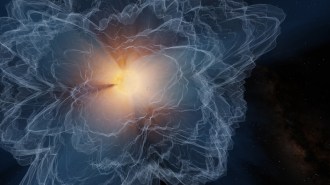 Space
SpaceFirst maps of the sun’s outer boundary may help predict solar storms
NASA’s Parker Solar Probe has mapped the shifting boundary between the sun and the rest of the solar system.
-
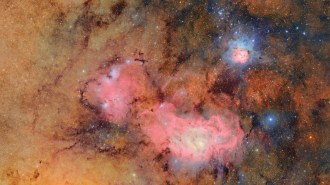 Space
SpaceThese space stories made us look up in 2025
Space is always inspiring and 2025 was no exception, with finding Betelgeuse’s buddy, debuting a prolific survey telescope and more.
-
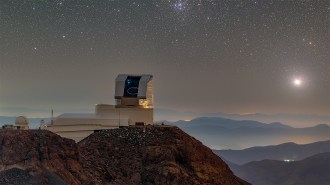 Space
SpaceThe Vera Rubin Observatory is ready to revolutionize astronomy
Sporting the world’s largest digital camera, the new telescope is poised to help solve some of the universe’s biggest mysteries.
-
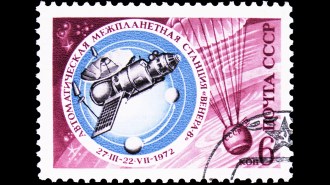 Space
SpaceA Soviet spacecraft has returned to Earth
Kosmos 482 launched for Venus in 1972 but never left Earth orbit. The spacecraft finally lost enough energy that it couldn't fight gravity anymore.
-
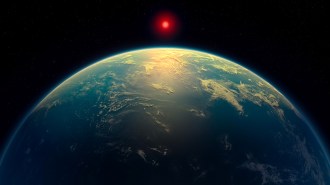 Astronomy
AstronomyA claimed hint of alien life whips up spirited debate
Astronomers have a lot of thoughts about the latest paper claiming we’ve found the strongest hints of alien life yet on the distant planet K2 18b.
-
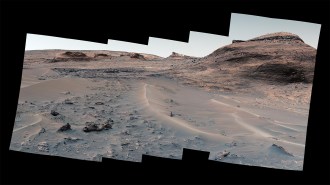 Space
SpaceA NASA rover finally found Mars’ missing carbon
The Curiosity rover identified hidden caches of the mineral siderite, which could help explain why Mars lost its habitable climate.
-
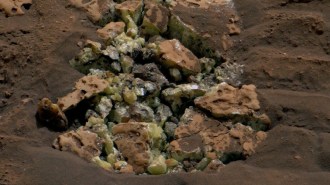 Planetary Science
Planetary ScienceCheck out some of the weird rocks that have turned up on Mars
Some of the unusual rocks carry stories about water on Mars. One has hints of long-gone microbes. All tell of a dynamic, complex planet.